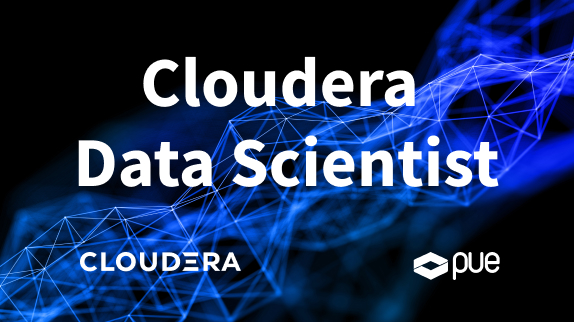The technological revolution we are living in today is creating new professions that are increasingly valued by companies. Many of these jobs, such as that of a Data Scientist, are related to data and Big Data analysis, for obvious reasons. Any company would like to have a professional among its staff capable of analyzing large volumes of data and thus making predictions to have indications that help to improve the business. The Data Scientist is, in many cases, the nexus between business and the development of use cases.
The Data Scientist is one of the most sought after profiles today, but let’s say that its functions are not limited to the mere fact of analyzing data. Let’s see how a professional dedicated to data science works, what should be their skills and what to study to be Data Scientist. A profession that was rated some years ago as “the sexiest profession of the twenty-first century” by Harvard Business Review.
The Data Scientist, an expert in the science of data
A Data Scientist is someone capable of analyzing data, yes, but not of any type. We are faced with a professional who dominates large volumes of information (Big Data), which are normally unstructured, and that thanks to their programming, math and statistics skills, is responsible for compiling, extracting and processing the relevant information they contain.
We speak, therefore, of a profile that integrates different capacities and that companies value enormously for the complexity of tasks that can be carried out.
The profile of a Data Scientist
We have already described the professional qualities that a Data Scientist must have. But beyond having an expert level in mathematics or statistics, this profile must also have other abilities and aptitudes beyond purely labor. Concern, curiosity, critical ability and ease of teamwork are skills that are related to the Data Scientist profile.
But what does a Data Scientist do exactly?
However, an expert in data science does not apply his knowledge solely to analyze information, but also to assess the analysis and provide, through these results, a prediction of different aspects or results to certain problems.
To be more exact, a Data Scientist would be able, for example, to make recommendations to the client according to their statistical interests (think of online services to watch movies and series), know what is the best time to make a vacation reservation or predict who will have certain diseases. These are just some of their applications, since a Data Scientist is also dedicated to establishing patterns, doing marketing segmentations or automating processes to facilitate daily tasks within an organization.
In addition, a Data Scientist must know how to handle specific software and technologies, such as Spark and Hadoop, to perfectly manage the tasks in an optimum way. In fact, both Spark and Hadoop provide these professionals with an interactive and iterative data analysis on scale.
In short, this profession requires a very complete and comprehensive profile, capable of combining different areas and skills to achieve excellent performance in achieving objectives.
Data mining, Machine Learning and Data Science
When talking about data science we are also referring, inevitably, to data mining. And this concept occupies a large part of the work that a Data Scientist carries out. Data mining consists in extracting useful and valuable information from where, initially, it does not seem to be. And for this, we have to follow a process similar to the following: information collection, preprocessing, model training, testing, visualization and interpretation of the results.
And one of the stages of this process consists, as we have mentioned, in training, also known as Machine Learning. It is at this point that you can start extracting results, since machine learning algorithms (or automatic learning) are capable of predicting and classifying new information, as a result of having been trained with past information.
It is at this point that you can start extracting results, since machine learning algorithms (or automatic learning) are capable of predicting and classifying new information, as a result of having been trained with past information.
All these concepts, technologies and processes will be part of the day to day of a Data Scientist, who will be responsible for putting into practice everything that involves working with the data science in order to obtain information from the Big Data, with the handling of very specific tools, and with a thorough and specialized analysis of all the collected data and algorithms.
How to train to become a Data Scientist
After all this, it is clear that the Data Scientist is a professional profile of great value, no longer in the future, but in the immediate present. A professional that big companies already have on their staff and that represents a fundamental figure within the structure of the company.
But how do you become an expert in data science? What should you study to be a Data Scientist? Combining various skills related to mathematics, statistics, programming and visualization is key in extracting and analyzing data. In addition to having these skills, you can do specific courses to get the specialization necessary to become a professional Data Scientist.
Cloudera Data Scientist course in PUE
PUE, as the EMEA Best Training Partner in Cloudera, has the official PUE Cloudera Data Scientist course that offers the necessary professional training to obtain and prove your knowledge.
The Cloudera Data Scientist course offers, therefore, a way to penetrate professionally in the world of data science with the guarantee of an official quality training given by certified instructors with professional experience in Big Data. Basic knowledge of Python or R and experience in data analysis or machine learning models is recommended.
Cloudera is a world leader in Big Data technology and PUE is, in addition to Cloudera’s Official Training Partner in Spain, the first Gold Partner worldwide in the implementation and consulting of Big Data projects.
For more information about PUE’s Big Data services:
Training and official certification in Big Data with Cloudera
Services and solutions in Big Data with PUE
Contact to know more in:
training@pue.es
Information request for training and certification in Cloudera
consulting@pue.es
Information request for the implementation of Big Data projects







